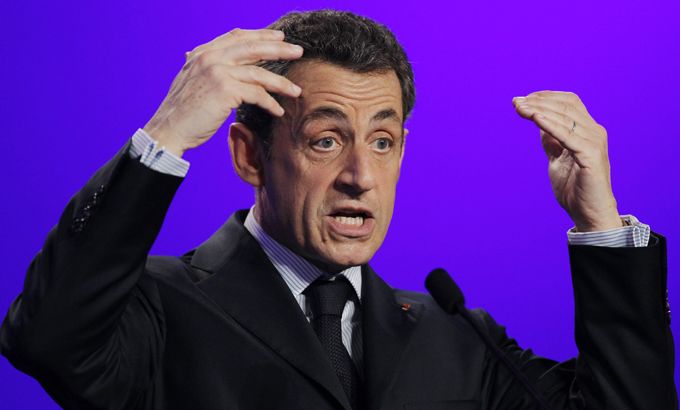
Sarkozy: Fighting for political survival
Are the Socialists on their way back to the Elysee Palace?
Francois Hollande has moved a step closer to becoming the first Socialist president of France since 1995, by beating incumbent Nicolas Sarkozy in the first round of elections.
|
“I think that we [Socialists] are leading, but it is only half time and like in any soccer game you only win if you win at the end of the game. All the propositions of Hollande are in favour of the jobs, youth, social security for everyone, and environmental issues are the main reasons why he is leading right now in the polls but we need to mobilise every French citizen … to vote in favour of Francois Hollande two weeks from now.“ – Thierry Marchal-Beck, the president of the Socialist Youth |
This election comes at a crucial time for France with its faltering economy and for a whole continent struggling with the Eurozone crisis.
Sarkozy is seen by many as having failed to live up to his promises. The strong result by the left seems to reflect a desire for change in the country after 17 years of centrist, conservative presidents.
However, in a bid to court right-wing voters, Sarkozy has campaigned hard on immigration. He wants to halve the number of foreigners entering the country illegally and increase deportation of illegal immigrants.
He has also promised to raise around $4bn by tightening profit tax loopholes for big companies. And in a move that would lower the cost of labour for employers, he plans to raise VAT to fund a reduction in social charges.
Meanwhile, Hollande has been very vocal in opposing a financial policy based on austerity.
He has promised to renegotiate the European Union fiscal compact to stimulate growth and create new jobs. His plan includes $26bn of new spending over five years that will help create 150,000 new jobs to tackle youth unemployment, as well as new positions in education and the police.
Hollande also wants to reverse tax breaks for the wealthy, with a 75 per cent tax rate on those earning more than $1.3m.
Undoubtedly France has come the closest to a move to socialism since Francois Mitterrand’s two-term presidency between 1981 and 1995.
|
“It is not looking terribly good for him. I don’t think everything is lost but I should say he has about a 20 per cent chance of inverting the trend. If you add all the votes that were cast yesterday you will find that actually, the right still has a majority but that would mean slapping together Monsieur Sarkozy’s votes with Madame Le Pen’s.“ – Anne-Elisabeth Moutet, a columnist for the Sunday Telegraph |
But the big surprise for many was the strong result for Marine Le Pen, the leader of the far-right National Front Party. She secured 18 per cent of the vote, exceeding her father’s second-place result in the 2002 presidential race.
“With joy, courage and dignity, against all odds, the French people took on the elite tonight. This first round is not an end but the beginning of a great union between of all those on the right and on the left who love France,” Le Pen said.
Can Sarkozy somehow convince National Front supporters to switch their votes to him in the second round? Could the Socialists make a comeback in France? And can Hollande really deliver on all his promises?
Inside Story, with presenter Shakuntala Santhiran, discusses with guests: Thierry Marchal-Beck, the president of the Socialist Youth; Anne-Elisabeth Moutet, a columnist for the Sunday Telegraph; and Thomas Klau, a political analyst and head of the Paris office of the European Council on Foreign Relations.
|
“The French today have understood the historic choice they have to make for this presidential election. They have thrown away all the predictions. And in doing this they’ve expressed themselves, it’s a crisis vote stemming from their worries, suffering and anxieties. Having to face this new world that’s in the process of such change.” Nicolas Sarkozy, the French president at an election rally |
___________________________________________________________________________________________________
FACTS ABOUT THE FRENCH ELECTIONS:
- France has had 17 years of conservative presidents
- Voter turnout was high, with about 80% cast ballots
- The main concerns of voters include wages, pensions, taxation and jobs
- Francois Hollande beats Sarkozy in the first round of elections
- It is the first time a sitting French president has lost the first round
- Hollande has gained 28.6% of the vote compared to Sarkozy’s 27.2%
- Hollande has campaigned on changing EU fiscal compact
- Hollande promised to raise taxes on big corporations
- Sarkozy and Hollande will go to second round of voting on May 6
- Sarkozy said he wants to tax people who leave the country
- Sarkozy promises to reduce France’s large budget deficit
- Shock result for anti-immigrant candidate Marine Le Pen who won 20%
- Le Pen receives highest ever result for far-right party